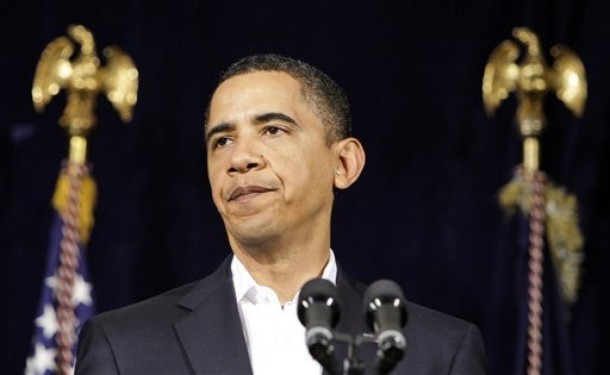Why can't we have an adult conversation about U.S. policy in the Middle East

Stephen Walt sounds off on the crotch-bomber:
'Second, most of the commentary about the attack focused on the breakdown in security procedures and possible intelligence failures, but for me the real issue is to ask why groups like al Qaeda want to attack us in the first place. With a few exceptions, this is a question that rarely gets much scrutiny anymore; pundits just assume "terrorists" are inherently evil and thatâ??s why they do evil things. (And some American extremists recommend that suspects like the Gitmo detainees be summarily executed without trial. I kid you not). But we really do need to spend some time asking why terrorists are targeting us, and whether we could alleviate (though not eliminate) the problem by adjusting some aspects of U.S. foreign policy.In particular, I'm struck by the inability of most Americans to connect the continued risk of global terrorism with America's highly interventionist global policy. One can have a serious debate about whether that policy is the right one or not; my point is that we are kidding ourselves if we think we can behave this way and remain immune from any adverse consequences.
'
This is a point I've harped on as well and it's important to emphasize that the "most Americans" Walt refers to also includes senior officials in the previous and current administrations responsible for counter-terrorism policy. From Peter Baker's big piece in the Times today:
'And so perhaps the biggest change Obama has made is what one former adviser calls the â??mood musicâ? â?? choice of language, outreach to Muslims, rhetorical fidelity to the rule of law and a shift in tone from the all-or-nothing days of the Bush administration. He is committed to taking aggressive actions to disrupt terrorist cells, aides said, but he also considers his speech in Cairo to the Islamic world in June central to his efforts to combat terrorism. â??If you asked him what are the most important things heâ??s done to fight terrorism in his first year, he would put Cairo in the top three,â? Rahm Emanuel, his chief of staff, told me........Yet even some of the Bush appointees were ready for change, appealing to Obama to revamp the struggle. â??Mr. President-elect, weâ??re doing things very well, but weâ??re losing the messaging war,â? Michael Leiter, the director of the National Counterterrorism Center, told him a week after the election, according to an official informed about the session. A significant share of the global population thought America was at war against the rest of the world, Leiter maintained. â??You have an opportunity to change that message, to change how the struggle is perceived,â? he said.
Obama was receptive to that mandate. â??Weâ??re going to do that,â? he replied....
'
The entire subtext of the Obama administration argument is that the principle U.S. policies that catalyze Islamic terrorism were implemented circa 2001. True, those policies poured gasoline on the fire, but the fire was burning before George W. Bush took office. The kindling was American support for autocratic Middle Eastern governments, its support for Israel, and stationing of combat forces in the Middle East. Combine that with Islamic fundamentalism and you have the combustion that is the global terrorist threat. It is frankly delusional to think that a mere speech, however well intentioned, can suppress these flames.
The basic problem, as Walt eludes to, is that Washington has zero interest in re-examining these policies in light of the terrorist threat associated with them. And so instead we pretend that the two are fundamentally disconnected. It's not a matter of American policy making people angry, the Obama administration seems to be saying, it's a matter of them not understanding American intentions. We're "losing the messaging war" - and so a good speech can shore things up.
This mindset is not only patronizing to its intended subjects in the Arab and Muslim world, it's patronizing to Americans.
What the Obama administration cannot, apparently, do, is have an adult conversation with the American people about U.S. policy in the Middle East. Why not simply say that on balance the threat from international terrorism is a small price to pay to maintain American hegemony in the Middle East? It's what they obviously believe. And not without merit - American hegemony not only contributes to oil's safe transit to world markets but ensures that other states - particularly potential competitors such as China - have to rely on America to keep the flow going, thus giving us crucial leverage in the zero-sum world of international politics. They could argue that the costs imposed on the U.S. by terrorism are less than those that would result from a policy change in the Middle East. Given the mix of motivations that propel someone to actually become a terrorist, they could also argue that the causal links between American policy and Islamic terrorism are so diffuse (and the problem already so widespread) that an American policy change at this late stage wouldn't even work to reduce the threat.
None of that would be very difficult for President Obama, who is, if nothing else, an effective communicator. But instead, this is all ignored in favor of a self-serving and infantilizing narrative that it's all a big misunderstanding - that we have a "communications" problem.
(AP Photos)
